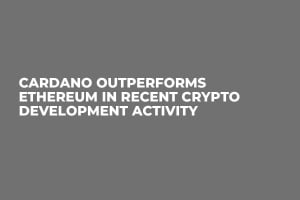
Prominent blockchain developer and Cardano contributor Sebastien Guillemot has revealed the future plans for Cardano's ecosystem. When asked about the possibility of building trustless bridges and Layer 2 solutions, the developer highlighted the team's dedication to facilitating the construction of such innovations for Cardano as a whole.
We're working towards making it easier to build L2s for Cardano generally speaking
— Sebastien Guillemot (@SebastienGllmt) May 31, 2023
Guillemot's Paima Studios had already made significant strides in this direction, releasing its own Layer 2 solution in April. This release allowed Cardano users to enjoy on-chain games using native token ADA, while also enabling users from other networks to partake in Cardano-based games.
Building upon this progress, another Cardano developer, Input Output, launched Hydra on the main network in early May. Hydra comprises a family of Layer 2 protocols designed to enhance Cardano's scalability and adaptability, catering to diverse use cases that demand fast and cost-effective transactions.
More innovations in Cardano
Guillemot's recent statement emphasizes the primary focus within the Cardano developer environment on chain solutions, including multi-tiered layers and sidechains. Addressing the challenges faced by projects in raising funds across various chains, Guillemot introduced the Milkomeda Asset Consolidator (MACC). This innovative solution aims to gather capital from multiple chains and consolidate all sales into a single Cardano asset.
According to Guillemot, the MACC will alleviate the liquidity hurdles faced by projects attempting to transition from their presale token to the asset for their final product. This consolidation feature streamlines the process, providing founders joining Cardano's DeFi environment with access to more capital, particularly due to low interest from venture capitalists. Guillemot envisions Cardano becoming the premier platform for raising capital in support of innovation.


 Vladislav Sopov
Vladislav Sopov Dan Burgin
Dan Burgin